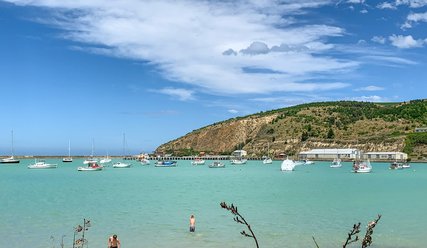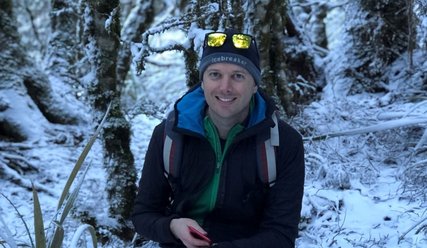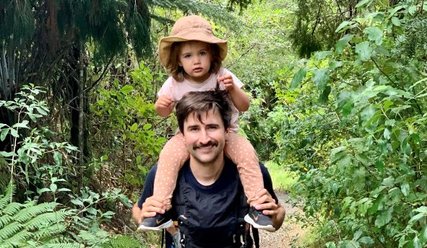Award-winner recognised for breaking down barriers
If anyone ever embodied the lyrics to the old song ‘Tain’t what you do, it’s the way that you do it’, it’s the 2021 James Reid Award winner and Division Fellow, Dr Marc Gutenstein.
Marc has been instrumental in enabling rural trauma and emergency teams to access training and professional development opportunities that not only benefit the individual, but also improve the performance of the whole team.
The James Reid Award is given each year to a rural medical practitioner who has demonstrated excellence or innovation related to education or research in rural health.
Marc discovered he was the 2021 recipient as he was putting his young son to bed.
“I didn’t even know I had been nominated, and couldn’t make the conference where the announcement was made, so it came as a huge surprise,” he says.
“It was really flattering to have the work I’ve been involved in for the last decade acknowledged in such a way. But I really must emphasise that I accept the award on behalf of all the people who’ve contributed to the success of the course. It’s been a big effort from a lot of people.”
Marc co-founded The Rural Interprofessional Simulation Course (RISC) with Dr Sampsa Kiuru, Dr Steve Withington and Tracey Reid. RISC provides skills workshops and high-fidelity trauma simulations to help challenge and support rural teams to find a better way of working together for a elevated patient outcome.
“I am a great believer that it’s not just what you do, but how you do things that can make all the difference,” says Marc. “I am really interested in how people collaborate and how they break down barriers, or put them up, when they are working with other people.
“It’s a really fascinating process to watch when we bring these teams in and provide them with a safe and supportive environment, establish a culture of mutual respect and trust, and start to explore better ways of working.
“It isn’t always easy for them, and typically the first day people are a bit disorientated and stressed, but by the third and final day they are working at full-throttle and dealing with whatever we throw at them with ease.
“And the really fantastic thing is those gains, the benefits of working in this collaborative way, do seem to survive the journey back to their normal working environment.”
The course was developed when Marc was working as an emergency doctor at Christchurch Hospital and saw a need for a training programme developed by rural people, for rural people.
“The medical world has long been a very hierachical one, with specialists occupying their niches and the focus being very much on patient outcomes.
“But rural hospital people tend not to fit into this mould, there’s a bit more of a horizontal power structure going on, with generalists coming together to form the bigger picture. Our training can really make a difference in how these teams operate.”
Marc is well-placed to understand how rural people work, describing himself as a radical collaborator. His desire to explore and break down boundaries and a sense of adventure brought him to New Zealand in the first place 20 years ago.
“I love the outdoors and that sense of being on the edge of things, which is why rural medicine attracted me so much, I think,” he muses. “I really don’t have any sort of life master plan. I am very much about seeing where life takes me.”
Aside from his work in the emergency department at Nelson Hospital, and his involvement in the RISC, Marc also holds a couple of academic roles at the University of Otago. He works with both the Rural Postgraduate Programme and the Rural Health Academic Centre at Ashburton Hospital, developing the trauma and emergencies paper.
Always looking for the next frontier to conquer, he’s very excited about the possibilities technology holds for rural medicine in the decision support space.
“Technology can bring all kinds of opportunities for us, but there are some obstacles to overcome,” he explains. “Much of the design focuses on the technical side of things rather than on how it’s used. I am really interested in exploring how we can make medical technology more intuitive and, ultimately, easier to use.”
He already has a technological solution to help practitioners navigate diagnostic pathways more quickly and accurately when dealing with chest pain that is ready to be plugged in.
“I’m driven by the really tangible benefits patients experience when they can be treated in the rural environment,” he says. “It reduces the need to for them to be transported to a big urban hospital, away from home and family. This is a particularly big concern for our Māori communities.
“The way people and machines could work together in a more collaborative way is something I find fascinating, and I’m really looking forward to exploring the challenges and opportunities that are out there for us.”
The award was announced at the National Rural Health Conference on 1 May 2021 in Taupō.


